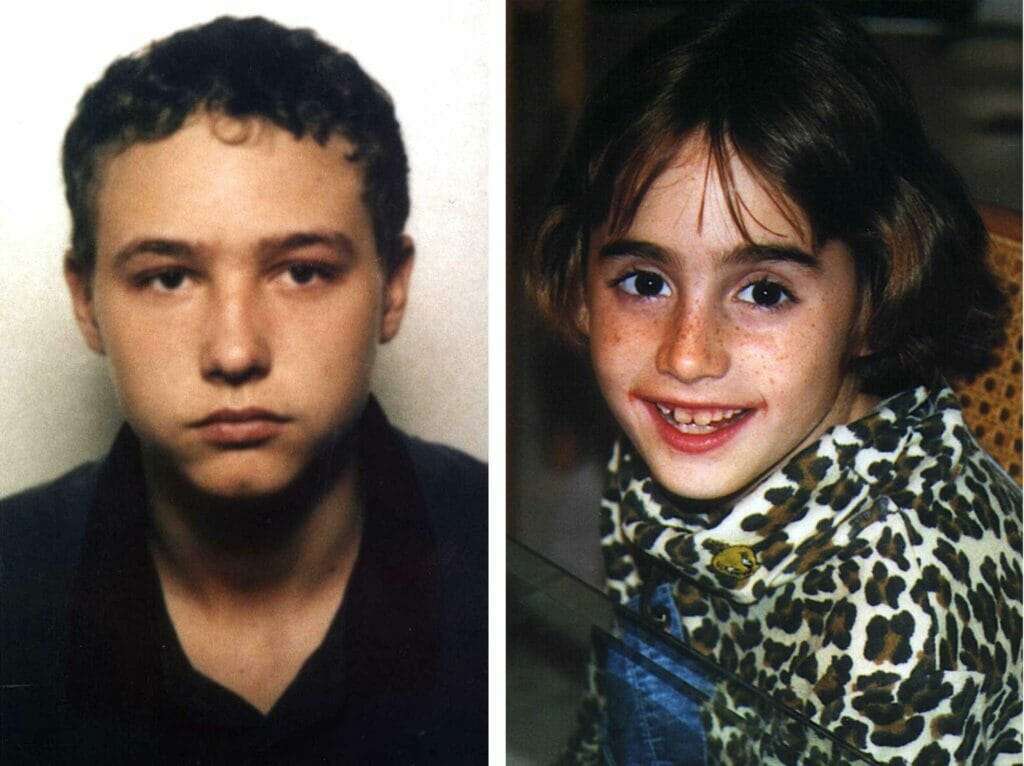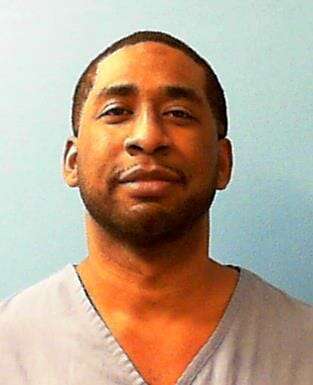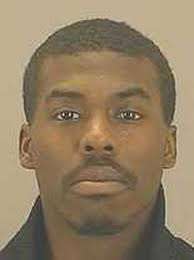
Paris Bennett was thirteen years old when he murdered his little sister. According to court documents Paris Bennett would convinced his babysitter to go home and when she left he would stab his four year old sister more than a dozen times. Paris Bennett would call 911 and tell the operator what he had just done. Years later he would admit in an interview that the reason behind the brutal murder is that he wanted his mother to suffer. This teen killer would be sentenced to forty years in prison.
Paris Bennett 2023 Information
SID Number: 07898441
TDCJ Number: 01804782
Name: BENNETT, PARIS LEE
Race: W
Gender: M
DOB: 1993-10-10
Maximum Sentence Date: 2047-02-05
Current Facility: FERGUSON
Projected Release Date: 2047-02-05
Parole Eligibility Date: 2027-02-05
Offender Visitation Eligible: YES
Paris Bennett More News
Twelve years ago a Texas mother learned her 4-year-old daughter Ella had been brutally murdered.
The person who murdered Charity Lee’s child wasn’t a serial killer or known criminal.
It was her 13-year-old son, Paris Bennett.
Ella was stabbed 17 times and strangled by her sibling while she slept in her bed. Paris had convinced their babysitter to go home and later phoned 911 to confess to the murder
He confessed he did it to get back at his mother.
ITV presenter Piers Morgan interviewed the now 25-year-old Bennett in a jail in Texas where he is serving 40 years behind bars.
Having spent almost half his life in prison, he will soon be eligible for parole.
With an IQ of 141, Bennett qualifies as a genius. Less than a quarter of one per cent of the world’s population has that level of intelligence.
As Morgan wrote in his story for Daily Mail, Bennett is also a psychopath, “someone who has been formally diagnosed as a psychopath by medical experts”.
Echoing famous scenes from The Silence of the Lambs, Morgan met Bennett in a secure room behind reinforced glass with heavily armed guards standing by. He was told he could not speak to the killer face to face.
“Why not?” Morgan asked.
“He’s too dangerous,” came the reply.
Morgan wrote: “True psychopaths have a chronic mental disorder that manifests itself in a number of personality traits including amoral or antisocial behaviour, extreme egocentricity, a lack of ability to love or establish meaningful relationships, and no sense of guilt, shame or embarrassment.
“Psychopaths can also be quite terrifyingly violent. Paris Bennett ticks every box.”
The facts of the case are chilling.
When he was 13, Bennett says he decided to punish his mother Charity for perceived wrongs. He planned to kill her. But instead decided to kill his 4-year-old sister Ella, effectively doubling the impact – one child dead, the other in prison.
While mother Charity was at work in a local bar, Bennett put his plan into action. He told the baby sitter to leave early, then calmly walked into his sister’s bedroom and began ferociously attacking her.
Bennett then called a friend on the phone and talked for six minutes before calling the police, who came and arrested him.
Lee told Morgan: “If Paris had killed me as he originally intended, I’d have only suffered for a brief few moments.
“But by killing Ella instead, he knew he was sentencing me to a lifetime of suffering.”
Incredibly, Lee says she has forgiven her son and visits him regularly. But she fears that if he is granted parole, he will torment her all over again.
When asked about her son, Lee told Morgan: “He’s human. He’ll be nice, personable, polite. Paris is very charming when he wants to be. I mean, he’s a psychopath.”
As Bennett walked into the secure room he announced, “Hello everyone”.
“Since this is going to be done for ITV, would you like me to speak in the Queen’s English?” he asked Morgan.
“Why are you doing this interview?” Morgan asked Bennett. “To show people that I am not a monster or villain,” he replied.
“Can you rationalise or explain what you did to your sister?” Morgan asked.
“I can’t easily explain everything. I think that’s been one of the biggest challenges for other people through the years, because no one likes to be confused. No one likes to be bewildered. We like… easy answers.”
Morgan asked why he had so much fury.
“For many years, there was just this hot, flaming ball of wrath in the pit of my stomach and it was directed at my mother,” Bennett said.
“And one of the reasons why I chose to kill my sister and not someone else is because I knew that by doing that I could hurt my mother in the worst possible way, because I had always known, as a child, that the most devastating thing to my mother would be the loss of one of her children, and I found a way to take away both her children in one fell swoop.
“Part of me loved my sister and would have turned the world upside down for her.” But there was a part “wounded, twisted, dark… the part that had been in pain for so long”.
“Misery loves company,” he said.
“I love her [Ella] with every fibre of my being.”
When asked by Morgan if he knew what love is, Bennett replied: “I don’t know how to answer that question. It’s not simple. I can’t just point at something and say, ‘OK, that’s love, I recognise it and feel that’.”
Bennett was then asked if he would kill again.
“The only person I’m dangerous to is myself because the very moment I feel the chains slipping and the bars bending, the very moment I detect that dark part of myself coming back out again, I would remove myself from the equation.
“Every single person walking around has it in him or her to commit murder. Margaret Atwood once wrote that if we were all on trial for our thoughts, we would all be hanged.
Paris Bennett Videos
Paris Bennett Other News
An Abilene teen who admitted to murdering his 4-year-old sister will serve the remainder of his 40-year sentence in an adult prison.
A hearing was held at the Taylor County Courthouse this week to make the determination.
In August 2007, Paris Lee Bennett, who was 13 at the time, admitted to stabbing his sister, Ella Lee Bennett, in February of that year. Bennett is now 18 years old.
He was sentenced to 40 years in state custody and has been held in a Texas Juvenile Justice Department facility in Giddings, Texas. Bennett will turn 19 in October and the juvenile facility cannot hold offenders past that age.
Bennett began his transfer hearing Tuesday to determine whether he would be moved from the juvenile facility to a prison under the Texas Department of Corrections.
Judge Robert Harper ordered a closed hearing due to psychological testimony given about Bennett. Wednesday afternoon, Harper ruled Bennett will serve out the rest of his sentence in prison.
Bennett will be eligible for parole after serving half of his time. Since he has been in state custody since February 2007, Bennett has built up credit for the time served in the juvenile system.
Assistant District Attorney Harriett Haag said she is pleased with the ruling.
“I’m glad it’s over. It was a tragedy. It was a terrible loss of a beautiful little girl and a destruction of a family,” she said. “It’s a true tragedy and I’m glad my part of it is over with,” Haag said.
Frequently Asked Questions
Paris Bennett FAQ
Paris Bennett 2021
Paris Bennett is currently incarcerated at the Ferguson Prison in Texas
Paris Bennett Release Date
Paris Bennett is eligible for parole in 2027. His maximum release date is 2047
Paris Bennett Photos




Paris Bennett More News
Paris Bennett stabbed his younger sibling Ella 17 times, after convincing their babysitter to go home for the evening.
The then-teenager, who is a genius with an IQ of 141, told police that he had done it in revenge for his mother relapsing into drugs.
Charity Lee, 44, had previously been a heroin addict before both Paris and Ella were born.
She relapsed when Paris was 11, taking cocaine for a six-month period and causing him to step in and look after his sister.
Charity had been at her waitress job in Abilene, Texas, on February 5 2007, when she police arrived to tell her that Ella had been murdered.
Paris had planned out the killing, attacking his little sister in her bedroom while she slept.
He then called a friend, before dialling 911 and telling an emergency worker what he had done.
The operator had responded by saying: ‘You think you killed somebody?’, to which Paris then replied, while crying: ‘No I know I did. My sister. I feel so messed up.’
At first he lied that he had suffered a hallucination, but later claimed he was in his right mind, stating it was revenge for his mother’s relapse.
He said: ‘For many years, there was just this hot, flaming ball of wrath in the pit of my stomach and it was directed at my mother.
‘One of the reasons why I chose to kill my sister and not someone else is because I knew that by doing that I could hurt my mother in the worst possible way, because I had always known, as a child, that the most devastating thing to my mother would be the loss of one of her children, and I found a way to take away both her children in one fell swoop.
He still maintains that he is not insane and does not suffer from any mental illness.
Charity said she managed to forgive her son after recognising him as a ‘predator’, likening him to a shark, unable to be anything other than be ‘what they are’.
She wrote in Good Housekeeping she has ‘learned to live with the past’ but will never understand why her Paris ‘did what he did’.
In a 2017 documentary, she said she would be frightened if he was free – particularly as she now has another son, Phoenix, born in 2013.
Paris has never met him, as he is not allowed to have any contact with children due his conviction.
Charity said: ‘If Paris wasn’t in prison or was able to meet Phoenix, I would have to do a lot more soul-searching.’
She now runs the Ella Foundation, set up in 2007 to aid those affected by ‘violence, mental illness, and the criminal justice system’, and does public speaking across the US.
Good Morning Britain host Piers described Paris as ‘more intelligent, more cunning and more manipulative’ than any of the killers he has met before.


























